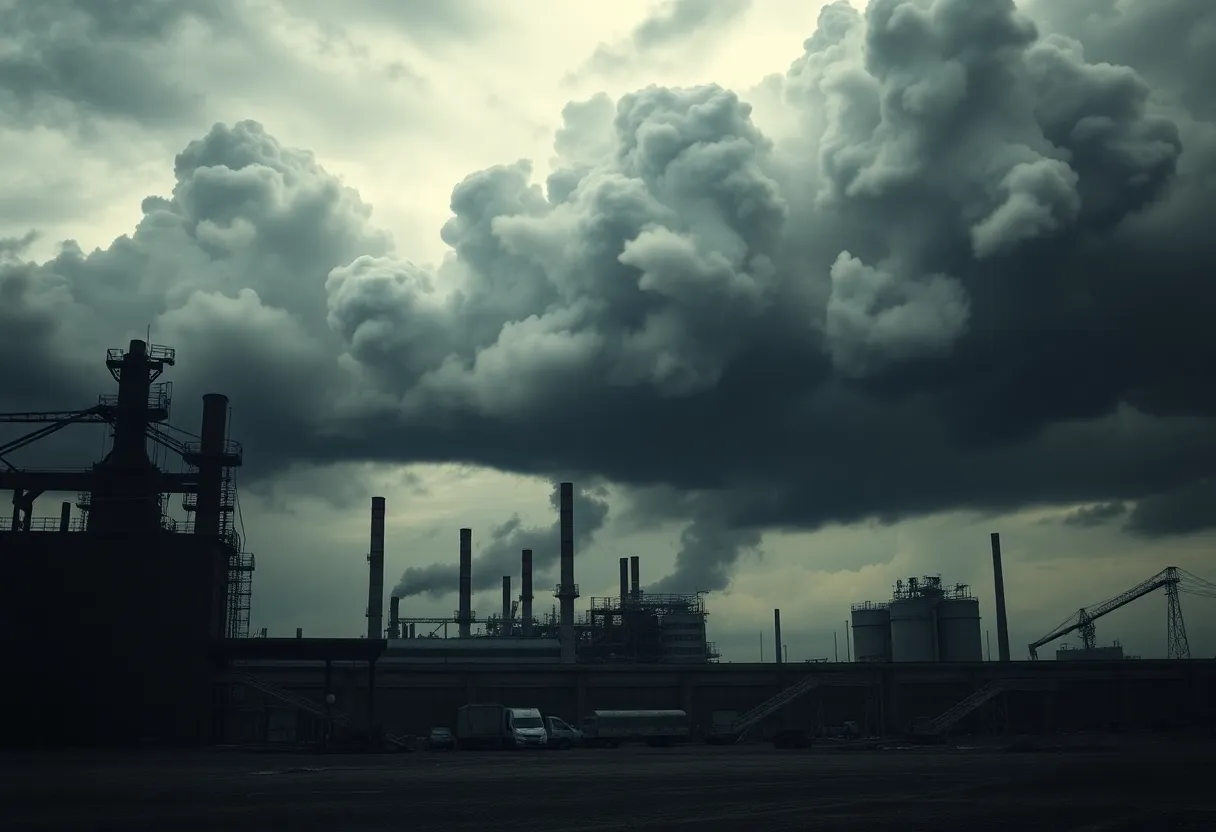News Summary
The Trump administration’s EPA is reconsidering a ban on asbestos, linking former President Trump’s image to a Russian mining company promoting asbestos products. Asbestos is a known carcinogen, with millions affected, especially veterans exposed during military service. The reversal threatens public health policies and raises ethical concerns about corporate interests in health regulations.
Asbestos Controversy: The Trump Connection and Its Potential Impact on Veterans’ Health
In a shocking twist in the ongoing battle over asbestos regulations in the United States, the nation’s Environmental Protection Agency (EPA) under the Trump administration has announced plans to revisit a critical ban on asbestos—one of the most notorious and deadly carcinogens known to humans. Amid this controversy is a disturbing connection between the former President and a Russian mining company, Uralasbest, which has been using Trump’s image to promote asbestos products globally.
The Push to Reconsider
While the Biden administration took significant steps to impose an outright ban on asbestos, former President Trump’s administration signaled a drastic reversal of these protections, claiming the existing regulations might “go beyond what is necessary.” Investigators speculate that this reconsideration may not just stem from a longstanding anti-science approach but could also involve possible financial conflicts of interest. Uralasbest has been prominently displaying Trump’s seal of approval on its asbestos products, branding them as “Approved by Donald Trump, 45th president of the United States.” The suggestion that Trump may benefit financially from these materials raises alarming questions about the integrity of public health policies under his administration.
A Deadly Legacy
Asbestos has a well-documented history as a health hazard linked to catastrophic diseases, including mesothelioma, lung cancer, and asbestosis. Initially lauded for its fire-resistant properties, this material has wreaked havoc on health, particularly among veterans who were unknowingly exposed to its fibers during military service. It was once a crucial component in building military vessels, aircraft, tanks, and various equipment throughout the 20th century, leaving thousands of service members at risk as they worked and lived in contaminated environments.
The Awful Statistics
Recent studies illuminate the chilling reality of asbestos-related diseases. Between 1999 and 2017, as many as 277,654 lives were tragically lost to conditions caused by this toxic material. Gruesome statistics indicate that approximately 30 percent of the 2,000 to 3,000 annual diagnoses of mesothelioma involve former servicemen—an alarming figure considering this demographic constitutes only 7 percent of the overall adult population.
The Risks of Reversal
The decision to reexamine the chrysotile asbestos ban poses not just a regulatory risk but threatens to undermine the achievements made in acknowledging the serious consequences of exposure to toxic materials. Specific legislation, like the Honoring Our PACT Act of 2022, has validated veterans affected by asbestos exposure, granting them access to critical healthcare services and compensation. However, any regression in the asbestos policy would negate these hard-fought advancements and disregard decades of scientific research.
A Call to Action
Activists, particularly those involved in asbestos awareness organizations, are sounding the alarm, urging opposition to the Trump EPA’s motions. They argue that allowing asbestos back into the supply chain could generate a surge in health issues and fatalities—a reprehensible reality for, especially, our veterans. The EPA’s actions risk reopening the floodgates not just to a wave of asbestos imports but also to the many illnesses that are poised to follow.
Conclusion: The Stakes Are High
The potential rollback of asbestos regulations and the context in which these discussions are occurring entwine health, politics, and corporate interests. This scenario underscores the urgency for comprehensive legislation to protect American citizens, notably veterans who have already suffered due to past exposures. The notion of Trump’s branding being placed on asbestos products further complicates this situation, raising ethical concerns and fear for the health of our communities. It is essential to uphold the bans that safeguard public health and prioritize the well-being of those who have selflessly served the nation.
Deeper Dive: News & Info About This Topic
HERE Resources
Concerns Over Asbestos at Cleckheaton Housing Development
Residents Raise Alarm Over Asbestos in Cleckheaton Construction
Residents Demand Action as Asbestos Concerns Emerge
Johnson & Johnson Faces Class Action Over Asbestos Claims
Johnson & Johnson Faces Legal Battle Over Mesothelioma Claims
Worrisome Asbestos Pollution in Shiraz: A Critical Health Analysis
Massive $9 Million Verdict for Asbestos-Related Death
Asbestos Exposure: A Silent Epidemic Among Veterans
Berkshire Hathaway Specialty Seeks Court Ruling on Asbestos Liability
Parents Protest Asbestos Exposure at P.S. 176 The Ovington School



















